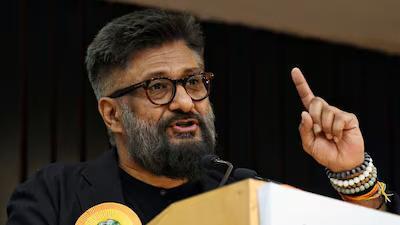
Can’t Suppress Truth: Vivek on TMC’s FIRs against ‘The Bengal Files’
Filmmaker Vivek Agnihotri has never been one to shy away from controversy, and his latest directorial venture, ‘The Bengal Files’, is no exception. The documentary, which explores the alleged political violence and human rights abuses in West Bengal, has drawn the ire of the Trinamool Congress (TMC) party. In a recent statement, Agnihotri responded to the FIRs filed by TMC members against the film, expressing his frustration and confusion at the party’s actions.
Agnihotri’s comments came after the Calcutta High Court granted a stay on the FIRs filed against ‘The Bengal Files’, but the filmmaker pointed out that despite this, more FIRs have been filed since then. “Why do they want to suppress our voice?…Are they against the film? Or are they against truth?” Agnihotri asked in a statement.
The FIRs against ‘The Bengal Files’ were filed under Sections 500 and 501 of the Indian Penal Code, which relate to defamation and printing or publishing any matter known to be defamatory. The TMC members who filed the FIRs claimed that the film was defamatory and harmed their party’s reputation.
Agnihotri, however, believes that the real motive behind the FIRs is to silence the voices of those who dare to speak the truth about the political situation in West Bengal. “We are not saying anything new or sensational. We are just telling the truth, and that’s what they are trying to suppress,” he said.
The filmmaker also questioned the timing of the FIRs, pointing out that they were filed just days before the release of ‘The Bengal Files’. “Is it a coincidence that FIRs were filed just before the release of the film? Or is it a deliberate attempt to intimidate and silence us?” Agnihotri asked.
The controversy surrounding ‘The Bengal Files’ is not new. The film has been mired in controversy since its release, with the TMC party and its supporters accusing Agnihotri of spreading misinformation and biases. Agnihotri, however, maintains that the film is a factual account of the political situation in West Bengal and that it is based on extensive research and interviews with eyewitnesses and victims of political violence.
The TMC party has also accused Agnihotri of being biased against the party and its leaders. Agnihotri, however, has maintained that his film is not political and that it is not intended to harm anyone’s reputation. “We are not taking sides or trying to harm anyone’s reputation. We are just telling the truth, and that’s what they are trying to suppress,” he said.
The controversy surrounding ‘The Bengal Files’ has also sparked a wider debate about freedom of speech and the role of documentary filmmakers in shedding light on important social and political issues. Agnihotri’s comments on the FIRs filed against his film have highlighted the importance of protecting the rights of documentary filmmakers to tell the truth, even if it is uncomfortable or unpopular.
In conclusion, the FIRs filed against ‘The Bengal Files’ are a stark reminder of the dangers of suppressing the truth and the importance of protecting the rights of documentary filmmakers to tell their stories. Agnihotri’s comments on the FIRs highlight the need to stand up for the truth, even in the face of adversity, and to continue telling the stories that need to be told.






